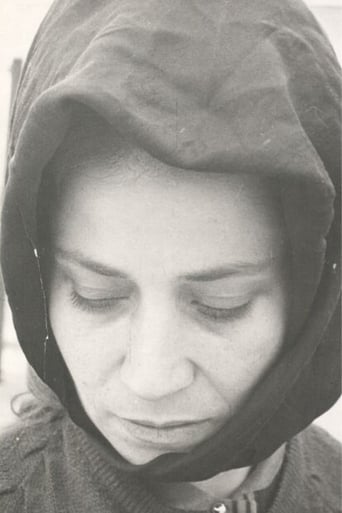BootDigest
Such a frustrating disappointment
Derrick Gibbons
An old-fashioned movie made with new-fashioned finesse.
runamokprods
Perhaps the most emotional of Angelopoulos' films so far. While it occasionally flirts with melodrama, it's ultimately heartbreaking while losing none of the film-maker's usual formal rigor and visual beauty.A couple try to find a way to stay together in the face of wars, both civil and international, as well as fighting small town prejudice and rejection. Not an easy film, and some of the history may be confusing unless you happen to be up on the history of Greece in the 20th century (I'll admit I'm not), but very worth the time and effort.Re the DVD: As with most of Angelopoulos' films, the edition you want to find if you can is the Greek 'New Star' release (it has English subtitles). This line was supervised by Angelopoulos personally, and the image is definitely a step up from the US release. The sad things is, inexplicably, those editions were only released for a short while, and they've become very hard to find.
Nick Dees
I viewed this movie at the TIFF in 2004. It was the first film I ever seen their and I have been going back every year since, hoping to see something that was as moving. By far one of the greatest films I have ever viewed. The cinematography, the acting, the script all worked hand in hand. At times when the dialogue was silent you were still captivated by what was being shown on the screen.The movie is long, but I did not lose interest once. I was lucky enough to meet Mr. Angelopoulos at the premier of his film and believe me for a movie buff like me it was a great honor even thought I did not realize it at the time. I believe that this film should be on every bodies must watch list if you are looking for a movie that is deep.I have since viewed a lot of movies and have yet to fond anything that I believe is as important.
Tormod B
Without doubt one of the most beautiful and painful films I have ever seen. For some time into the film I didn't understand why the director decided to keep so much distance to the main characters. And then suddenly it dawned on me: These are people caught up in a much larger historical picture – out of their control – and the total historical painting is more important than all the separate details together. However, in the second half of the movie, Angelopoulos moves closer on the main characters, and the movie takes a much firmer emotional grip of your heart. This is a movie about extreme human pain in troubled times – brought on us by human pride and stupidity – and it takes some time and effort to get through this epic. But if you hang in there, it's an experience I think many of us will never forget. The final sequence is just…well, what can I say?
diodorus2000
I can pretend no knowledge of cinematography or Mr. Angelopoulos. But I know Greece and I love her people. In July my 14 year old son and I traveled to Cappadocia, Turkey in search of some remains of the neighborhood where his great grandfather Iordanis lived until the great exodus of Anatolian Greeks in 1923. Reading the summary of the film (refugees from Odessa) I thought that perhaps I might learn something more about the forced migrations of modern Greeks. If I did not have a home in Rhodes, had I not been to Greece 28 times in as many years, were I not familiar with dozens of islands and cities in Greece and if I had never enjoyed the friendship of these ebullient, life-intoxicated people, I might have believed that this lamentation had something to do with modern Greece. As a professor at a New Jersey State college, let me assure you that I am familiar with the history of the period covered in the film. Indeed, my wife's uncle was murdered by the communists during the communist grab for power. My mother-in-law lived through the Italian invasion and German occupation...barely. These characters on the screen speak Greek, they listen to Greek music but who are they? No, they are not even vaguely Greek. Of course they are not people at all but simply allegories. They are that which the artist invents when life does not entirely fit or is inadequate to his perception of how it was or should have been. All represent some aspect of post WWI Greece that greater outside forces consigned to a fate they didn't deserve. As we joked in the late 70's in America: "The Revolution didn't happen." For an ideologue/artist, this is no joke. It's in fact grounds to put us through two and a half hours of torment. And it's all because the various Powers (Eleni's soliloquy of "guards" in different colored uniforms) didn't allow the generation after the "aristocrats" of 1919 (Spyros) to follow the call of peace and freedom (the music of Nikos and his fellow musicians, i.e., the Movement, the Cause). This dark, surreal revisionism smears the true and heroic efforts of the Greek people to sustain their lust for life through the tragedies of the 20th century, to achieve more than any of their Balkan neighbors, to have become so politically evolved and globally integrated.





